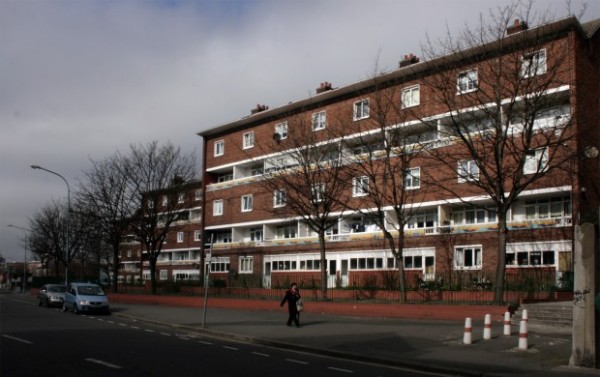Conor Murphy | Features Editor
It is not news to suggest that renting is at it’s worst in many many years. Horror stories about literal beds under stairs being advertised are a plenty, as are all too common stories about inhumane commutes from half-way across the country.
Due to this there is an ever increased danger of landlords ignoring their legal responsibilities and desperate students being glad to get anything under half a grand accepting terrible living conditions.
To this end we’re collating some of the information out there about basic legal requirements and rights around tenancy. And to all those who moved into a terrible accommodation knowing it was terrible, if it’s below the legal limit you can still demand it be brought up to code.
Your Basic Rights
The basic rights are fairly obvious: you give them an agreed amount of money over an agreed amount of time and you get to stay in their place. If you wreck the place, you don’t get some of the money back equal to how much you wrecked it. So far so simple.
However there are some quick points to go over that are common stumbling blocks for tenant landlord relationships.
Recording All Transactions
This includes the contract. Get it, read it and both parties should have a dual signed copy. The basic things it should include are date of entry, amount per week or month and date of departure.
All landlords are also required to provide a rentbook. Few actually do. But one thing you should ensure if you don’t have a rentbook in your possession is to pay via bank transfer as there will always be a record there. Any landlord who insists you pay in cash is probably dodging tax, not your problem, say your parents will only transfer it in or something to see if they budge. Many are also advised to do background checks on their tenants using services similar to AAOA but not as many do. This can end up causing issues for the tenants and landlords down the line if it isn’t done.
Quality Of Accommodation
A landlord cannot just rent the lowest quality housing people will take. The items rented must be of a basic standard. The basic tenets are that it’s clean, dry, possible to warm and of the minimum dimensions. If you read the housing specifications you’ll often come across this line “in a proper state of repair and are properly maintained.” which means it has to stay in the decent condition you first rented it in.
The most likely rules to be broken here are damp; any damp is not allowed and the landlord must be taking steps to eliminate it once noted. If there is any sign of pests then a company like Fremont Pest Control needs to be contacted and brought in to get rid of the pests. Another one is windows, I’ve noted apartments before that don’t have windows into the bedroom, every bedroom in Ireland must have direct connection to light and air from the outside. If not the bedroom is not considered habitable. You must also have bins for the storage of waste and any public area must be neatly maintained by the landlord unless you both have agreed that it is your responsibility. If you are having issues with any appliances then the landlord should get a company like Ready Reno Appliance Repair to fix anything that’s broken.
Resolving Disputes – PRTB
You absolutely must be registered with the Private Residency Tenancy Board (PRTB) at the start of the accommodation. This is for both your and the landlords protection. If any disputes arise check out their site for information on how to bring them in front of the board. they also deal with mediation so this is always the preferred step to actually suing them. If you’re a landlord, you should probably consider getting some landlords insurance provided by constructaquote.com to make sure you and your property are covered.
Live in Landlords
Resident landlords are becoming more and more common. However be extremely careful who you live with. You have basically no rights with a live in landlord. This is because it’s their home, the government cannot force them to live with someone or control their speech inside their home.
Therefore they can be legally racist, sexist or homophobic (once they are not physically threatening of course). They do not have to provide a rentbook, they do not have to register you to the PRTB, they don’t have to pay tax on you (within limits) so there is often no record of you having lived there. They even don’t have to give you notice to turf you onto the street. Again, some are quite good (since it’s their home it’s often better looked after) but you better have a backup plan because someday they might just not like Meath people anymore.
Some Landlords are Good, many are mediocre and a few are terrible and illegal. Know your rights, know your options for leaving and get a record of every contract, payment and decision made and you’ll be fine. If all else fails contact your welfare officer or the PRTB to go through your options.







